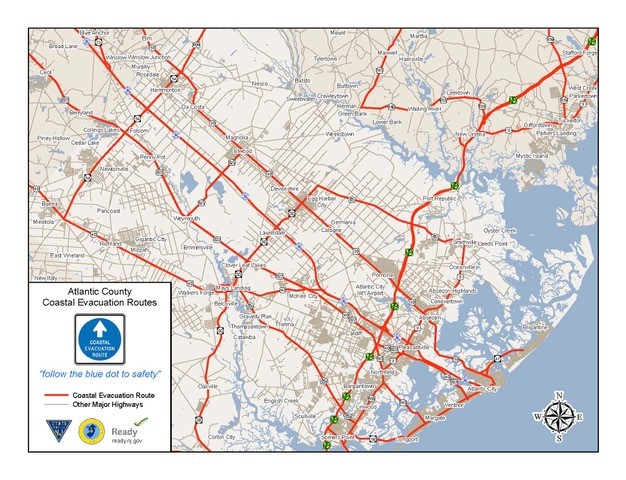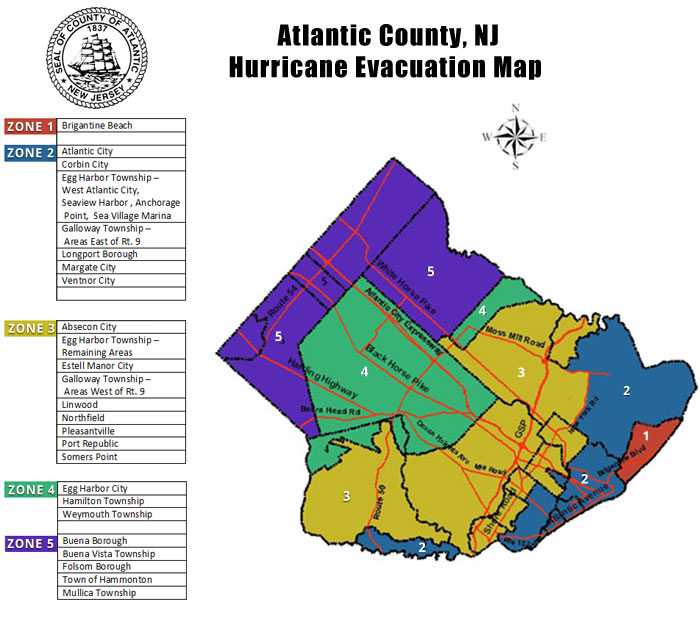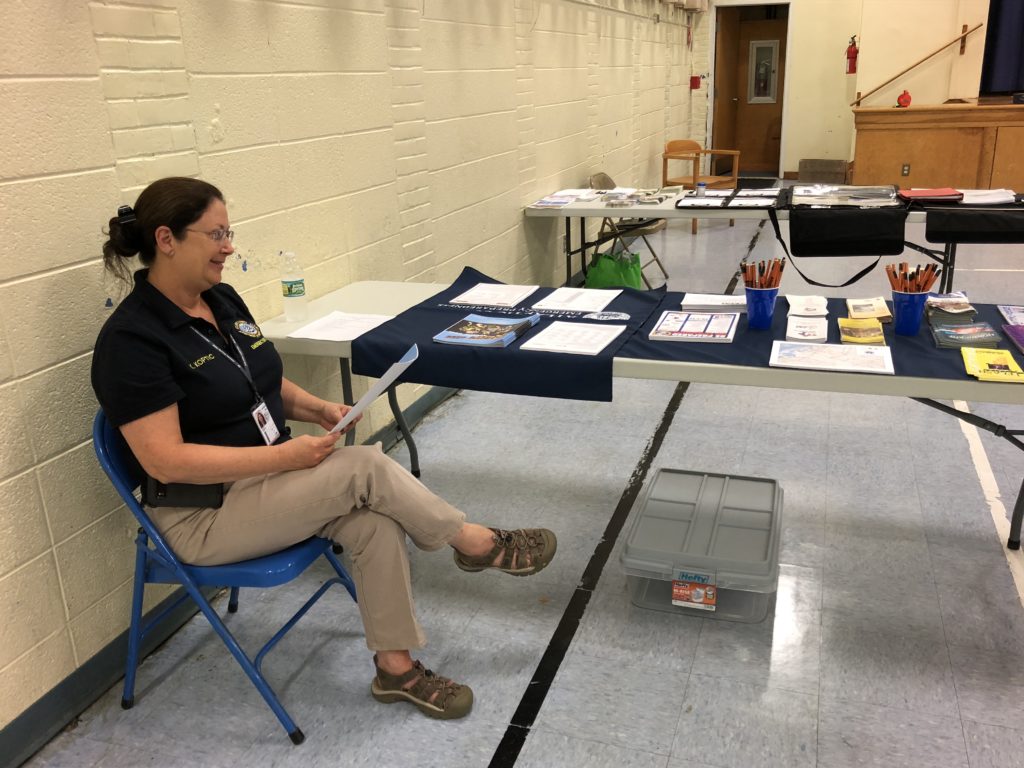Retired meteorologist Jim Eberwine speaks during the hurricane preparedness meeting held in Margate Tuesday, Aug. 21.
MARGATE As hurricane season intensifies, Downbeach emergency services officials want you to know what to do when disaster hits. Taking lessons learned during Hurricane Sandy, emergency managers offered information Tuesday, Aug. 21 that could save a life.
Perhaps the most valuable information offered to the 20 or so Downbeach residents who attended the annual hurricane preparedness meeting held at the Margate Municipal Building was to get out while you can.
According to Atlantic County emergency management official Jake Lees, Atlantic County Office of Emergency Preparedness Director Vince Jones makes the call on when and where to evacuate, first on a voluntary basis and then a mandatory evacuation.
It's the hardest decision he has to make, Lee said. If he says evacuate, go.
And it's best to leave early during voluntarily evacuation, he said.
We did a poor job during Sandy, because a lot of people decided to stay, he said.
Others who left, tried to get back a day or two after the storm but were turned away by emergency personnel.
The county puts up an exclusion zone and will not let you back in, he said.
 Lees recommended that residents and visitors to the shore leave during the voluntary evacuation, when roads are still clear.
Lees recommended that residents and visitors to the shore leave during the voluntary evacuation, when roads are still clear.
The county has evacuation zones that allow a more orderly evacuation. Brigantine, which only has one way out, is evacuated first, he said. The barrier islands and portions of Egg Harbor and Galloway townships east of Route 9 are next. Mainland areas are in zone three and so on.
However, Cape May is the very first county to evacuate because motorists must travel through Atlantic County to get out, he said.
The same routes that flood now will flood during or after a hurricane, so it is best to move on a voluntary basis than during a mandatory evacuation or you will be stuck in traffic congestion, he said.
 One of the reasons many people decide to ride out a storm is that they don't know what to do about their pets.
One of the reasons many people decide to ride out a storm is that they don't know what to do about their pets.
Atlantic County has a very aggressive pet sheltering program, he said.
But being in a pet shelter can be stressful on animals. Lees recommended taking your pets with you and along with your own, bring their medications and supply of food with you.
Leaving your pets home to fend for themselves is not an option. Because of the exclusion zones after a storm, pet owners will not be allowed back to care for their cats and dogs.
Residents should also know that during a state of emergency, police, firefighters and EMTs are also required to shelter in place.
Once the winds hit 40 or 50 miles-per-hour, emergency personnel are not allowed to be out in the weather, retired meteorologist Jim Eberwine said.
Press of Atlantic City Meteorolgist Joe Martucci said although this hurricane season was predicted to be average, it has been downgraded and it's likely only one or two hurricanes will form in the Atlantic.
We have a lot of dry air coming from the Sahara, so we've been light on tropical storms and hurricanes, he said. However, it only takes one to be memorable here.
 Longport emergency management coordinator Bruce Funk encouraged residents to consider joining the CERT (Citizens Emergency Response Team) program, which trains individuals how to assist other during a crisis, including working in a team, evacuations, setting up triage and administering emergency first aid.
Longport emergency management coordinator Bruce Funk encouraged residents to consider joining the CERT (Citizens Emergency Response Team) program, which trains individuals how to assist other during a crisis, including working in a team, evacuations, setting up triage and administering emergency first aid.
The eight-session program includes 20 hours of training and a simulated disaster drill.
After 9-11, the spirit of volunteerism kicked in, he said. The CERT program is a great way to help your neighbors and learn survival skills.
Ventnor emergency management coordinator Donna Peterson encouraged all residents and property owners to sign up for their local CodeRED notification system.
Residents can sign up on their local municipality's website or can call their local emergency management office to get help signing up.
It's a very good system to have because if it's a local event, our residents will know which roads are closed or where there are parking restrictions, she said.
The county also has a Register Ready program for people with special needs or those who will need extra help during an evacuation.
You are not automatically enrolled, Peterson said. You have to register for these services in advance.
Margate emergency management coordinator Jerry Greenberg advised everyone to have a ready bag, filled with everything you will need to survive three days in a shelter, hotel or with a family member or friend, including a change of clothing, extra underwear, personal care items, first aid kit, eating utensils, water, energy bars, pencil and paper, trash bags, medications and copies of prescriptions, and a list of family contacts.
If officials call for evacuation:
